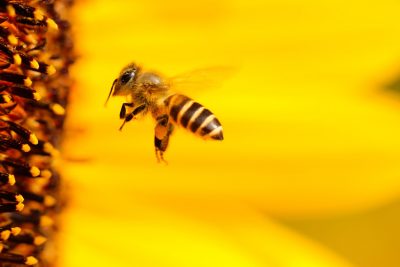×


We have detected your country as:
Please click here to go to the USA website or select another country from the dropdown list.
 There is no overestimating the importance of pollinators in our world today. While crop pollination relies mainly on managed colonies of the domesticated honey bee (Apis mellifera), wild, unmanaged pollinators were found to be highly effective, often critical contributors to pollination services in natural and agricultural systems. Among these wild pollinators, native bees are the most important pollinator group. Recognizing their importance, Israeli researchers were excited upon the discovery of a new bee species, particularly in light of decreases in pollinator populations, most notably bees, in many parts of the world.
There is no overestimating the importance of pollinators in our world today. While crop pollination relies mainly on managed colonies of the domesticated honey bee (Apis mellifera), wild, unmanaged pollinators were found to be highly effective, often critical contributors to pollination services in natural and agricultural systems. Among these wild pollinators, native bees are the most important pollinator group. Recognizing their importance, Israeli researchers were excited upon the discovery of a new bee species, particularly in light of decreases in pollinator populations, most notably bees, in many parts of the world.
In response to the decrease, biologists have placed habitat preservation and restoration as one of the key tools in protecting pollinators and biodiversity as a whole. In the process of ongoing studies on how to conserve such habitats currently ongoing in Israel’s Sharon (coastal) region, researchers were surprised to discover a previously unknown wild bee species.
The Israeli study focused on the impact of restoration activities of a threatened sand ecosystem along Israel’s coastal plains. Large-scale Eucalyptus plantings that took place in this region in the last decade caused dramatic changes in habitat characteristics and decreased local biodiversity.
Researchers led by Professor Yael Mandelik and PhD candidate Karmit Levy from the Department of Entomology in the Faculty of Agriculture, Food and Environment at the Hebrew University of Jerusalem have spent the past five years studying the effect of restoration activities and specifically how they affect the local bee population.
The team found reasons for optimism in the gradual change following restoration actions.
The researchers recorded another exciting discovery: a new species of bee that had never before been recorded and that is believed to be unique to sand dunes found on Israel’s coastal plains.
The name chosen for the species was Lasioglossum dorchini in tribute to the Israeli bee researcher Dr. Achik Dorchin from the Steinhardt Museum of Natural History, Tel Aviv University.
“Beyond just the professional excitement of discovering a new species that was previously unknown to science, this finding has broader applicative value in helping us better understand bee communities, their habitat requirements and the pollination services they may provide,” Mandelik said.
Source: Excerpt from a press release by the Hebrew University of Jerusalem
Photo Credit: hansbenn/pixabay.com
All logos and trademarks in this site are property of their respective owner. All other materials are property of Bridges for Peace. Copyright © 2024.
Website Site Design by J-Town Internet Services Ltd. - Based in Jerusalem and Serving the World.